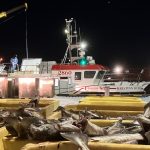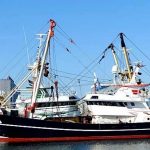Presently Norway and Japan have attracted whalers and protesters. But New Bedford always remains the largest commercial fishing port in the United States. It has now in worse condition. Its textile mills, once booming, nosedived years ago, and the digital age hasn’t brought new careers to a city driven by hard, working-class jobs. Experts said that New Bedford used to be a fat city, alive, healthy, too, and hopping. Now downtown is a ghost town.
New Bedford has been revisited by an author Nugent in his book, which discuss the city and its prosperous business of whales. Nugent presents the city through sharply drawn portraits of a handful of locals. Among them are a café owner, a Vietnam veteran and a man named Hake whom other fishermen ostracize because he has survived too many shipwrecks (“a freakin’ jinx,” one fisherman calls him).
The most striking and emblematic figure in Nugent’s book may be a 46-year-old fishing boat captain named Mako. A seventh-generation fisherman, he secured his reputation at the age of 23, when he piloted his first fishing boat through a white-out blizzard. Mako is an independent fisherman who belongs to a threatened species, their number steadily dwindling.
Nugent also mentioned presently, most of the nearly three hundred commercial fishing boats in New Bedford Harbor are parts of mini-fleets operated by large corporations, and the consolidation of ownership progresses at a rapid rate. Mako works against the corporate current, running his fishing boats the way previous generations did, but it comes at a steep price. Struggling to save one of his boats from creditors, he picks up side jobs helping drug smugglers. Piracy and smuggling have a long history in New Bedford, and modern-day smugglers chafe at the increased presence of law enforcement.








